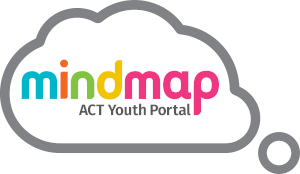The AEDC Data 2024 (NEW)
Released Friday 13 June, 2025.
The Australian Early Development Census (AEDC) data provides a snapshot of children's development that can inform communities and support planning, policy and action within our schools.
The AEDC is a nationwide data collection of early childhood development at the time children commence their first year of full-time school. The AEDC highlights what is working well and what needs to be improved or developed to support children and their families by providing evidence to support health, education and community policy and planning.
The AEDC is held every three years, with the 2024 AEDC data collection being the sixth collection.
What Is It Measuring?
The five AEDC domains provide an insight at a community level into the learning and development needs of young children. The AEDC is also a useful predictor of future development and learning, indicating how well early childhood education programs have prepared them for future learning experiences.
- Physical Health & Wellbeing
- Social Competence
- Emotional Maturity
- Language and Cognitive Skills (school-based)
- Communication Skills and General Knowledge
You can view family and community factors that support positive development across the five domains here.
2024 Community Profiles - Southside Canberra
You can view the Community Profile and Multiple Strength Indicator Community Summary for each region.
Key 2024 AEDC findings for the ACT show that:
"The percentage of ACT children starting school with developmental vulnerabilities is higher than nationally"
* In 2024, 28.1% of children in the ACT were developmentally vulnerable on one or more domains, greater than the national rate of 23.5%.
*14.9% of ACT children were developmentally vulnerable on two or more domains, higher than the national figure of 12.5%.
*The percentage of ACT children whose development is on track on all five AEDC domains has decreased since 2021 (from 47.3% in 2021 to 43.8% in 2024).
*A lower percentage of children are on track on five domains in the ACT than nationally (AUS: 52.9%, ACT: 43.8%).
Developmental vulnerability for ACT children is rising
*Developmental vulnerability in the ACT has been increasing significantly across the AEDC cycles.
*There were increases in developmental vulnerability across four of the five AEDC domains in the ACT, with the largest increase in the communication skills and general knowledge domain.
*Encouragingly, there was a significant decrease in the percentage of ACT children vulnerable in the social competence domain (decreased from 12.2% in 2021 to 11.5% in 2024).
More ACT children need further assessment than ever before
*There continues to be a growing number and percentage of ACT children needing further assessment.
*In 2024, 1,129 ACT kindergarten children were reported as needing further assessment, or approximately five children in every ACT kindergarten class (23.0%).
The AEDC results help schools, communities, governments, early childhood professionals and researchers identify what is working well and what needs to change to better support children and their families. The 2024 ACT results highlight the need to strengthen early childhood supports and promote early child development.
Percentage (%) of Tuggeranong Children Developmentally Vulnerable in 2024
More information is available at Australian Early Development Census - ACT Government and to access the AEDC data, community profiles and national report visit Home | Australian Early Development Census (AEDC)
